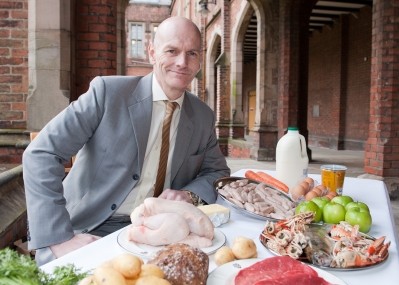Supermarkets took supply chain ‘on trust’ – horsemeat

That’s according to professor Chris Elliott, who is spearheading the government’s enquiry into the integrity and assurance of food supply networks in the wake of the so-called horsegate scandal.
Speaking at an Environment, Food and Rural Affairs (EFRA) Select Committee meeting in parliament yesterday (January 8) examining his investigation so far, Elliott said: “I was surprised at how the supermarkets very much took on trust. There was very little rigour, very little verification that people were meeting specifications.”
Manufacturers should require all suppliers to be regulated business operators that were regularly audited, he said. And if they needed to switch to others suddenly, they should quiz them about that. “They should ask them and, if they are not, why are they buying from them?”
Elliott told FoodManufacture.co.uk during a break in proceedings there had been an “over-reliance on paperwork” before the scandal had erupted. In session, he said: “Auditing of paper isn’t actually that worthwhile.
Visual inspection
“Visual inspection – that’s where you see things. It’s not just about investing in a sampling programme.”
His investigations had found the industry was conducting little sampling before the scandal broke and that, in fact, levels of sampling were falling. Happily this situation had changed, he added. “The industry is doing a huge amount of testing at the moment. They don't need to be told to do testing.”
However, the dwindling number of public analysts available to handle regular sampling, and their lack of resources, was a serious issue, he said.
He believed a network of European testing centres of excellence, including national reference laboratories and a coordinating European reference laboratory was necessary. “It’s very dangerous to think the market will pick up testing, because it won’t.”
He was wary of requiring the Food Standards Agency (FSA) to have a statutory obligation to manage testing, as this would necessitate having fixed programmes and procedures. That would create a system that was too rigid to adapt to constantly changing criminal food fraud practices, he said.
He believed testing should be implemented randomly and should be done on the basis of intelligence-based risk assessment. “I have already guided industry and the FSA to take these risk assessments. If you do random testing, it keeps suppliers on their toes.”
‘Nobody has been tracking this’
The scale of food fraud had also been underestimated, he said. “What became apparent was that nobody has really been tracking this. This is not something that happens at a local level; it’s something that happens at an international level.”
Manufacturers should look at simplifying their supply chains, as greater complexity multiplied the number of weak points in the system, he said. He cited examples of best practice in the industry including McDonald’s and Morrisons.
Morrisons’ vertical integration strategy gave it strong control and visibility over its supply chain and McDonald’s had longstanding relationships with suppliers that other companies would do well to imitate, he said.
Elliott published an interim report on his continuing review last month. Initial recommendations included that the government should set up a Food Crime Unit to fight food fraud and that the FSA should get back jurisdiction over food authenticity and compositional labelling. Responsibility for that passed to the Department for Environment, Food & Rural Affairs in 2010.
This would allow a more coordinated approach to tackling food fraud, Elliott argued.



















